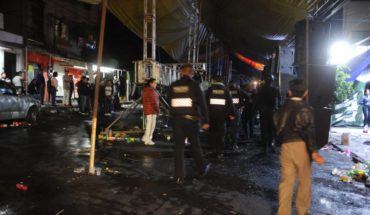
Mr. Director:
Thomas Nagel is a well-known American philosopher who in 1967 published an article entitled What is being like a Bat? Its general proposal is that when we can know what it is like to be the subjective quality of what it is to be like as one, we will be able to properly explain the mind, not under mathematical, physical, biological, cognitive and social reductionist principles, but from the inherent and natural subjectivity of all human action and thinking.
Under this Nageliana perspective, I ask you: What is being like a SENAME child? What is it like to be like a child who has suffered trauma since before his birth? What’s it like to be like you?
Just as Nagel’s proposal struck a very strong blow to the conceptions of the time (and current ones) about how to understand the human mind, I think that only when we can develop a genuine and respectful awareness of what it is like to be like a child can we move towards real change in public policies in childhood. Although it may seem like a very “electric and psychologicalist” proposal, the truth is that it has been a task that it has taken adults more than 10,000 years to start developing (and we are still halfway there!). Unfortunately, the history of childcare, philosophical, psychological, educational, and public policies on what it’s like to be like to be like a child, rather have shown us subjectivity, motivations, aspirations, and ideologies about “what it’s like to be like an adult.”
So my second question is: How can this respectful consciousness be developed? While it may be that knowledge acquisition, abstract or practical discussion on the subject, or even the proposal of evidence on child development, is an appropriate path, they do not seem sufficient to me. Likewise, I do not believe that it is a four-year task, nor that it is defined under political-ideological criteria, let alone under economic proposals. What we do know is that a good starting point is to develop the ability to observe and ask children, and thus wonder what they may be feeling, what they think, what they need, what they care about. But most difficult of all, is to do that exercise on a daily basis, setting aside our adultized worldview, and so a respectful relationship to childhood could arise, since that is one of the main motivations, desires and longings of them.
This proposal may create a sense that “I am not saying anything at heart,” but discuss the history and evidence of how true changes occur in human life (and in their own lives), and you will understand that I am right. And in the end, the problem is that “everyone thinks about changing the world, but no one thinks about changing themselves.”
Felipe Lecannelier A





